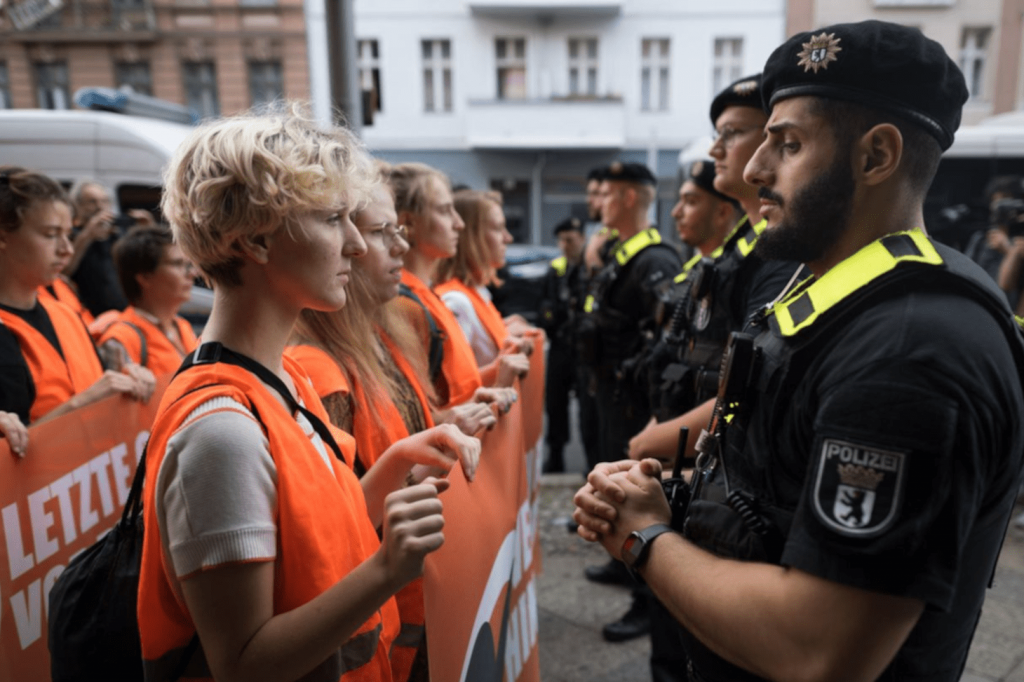Across Europe, environmental activists face increasingly severe legal consequences for their actions. In several European countries, authorities treat climate protest as a threat to public order, handing out harsh and arguably disproportionate penalties to activists from groups such as Last Generation and Riposte Alimentaire.
This cross-border investigation exposes the growing crackdown on environmental activism across the European Union, with a specific focus on France, Germany and Italy. In recent years, authorities in these countries have escalated their response to climate protest movements by introducing punitive legislation, invoking criminal statutes intended for organised crime, and deploying invasive surveillance technologies.
Through on-the-ground reporting, interviews with affected activists, legal experts and human rights organisations, and a review of relevant case law, this investigation maps this growing pattern of repression.
It also explores the human impact of these legal pressures: activists facing surveillance, financial hardship and professional consequences. At the same time, it highlights how movements are adapting, shifting away from symbolic museum protests to large-scale direct actions targeting sectors responsible for high emissions, such as aviation and fossil fuels.
In Italy, an activist from Last Generation was given a nine-month suspended prison sentence after gluing her hand to the base of the Laocoön and His Sons statue in the Vatican Museums. Although she deliberately chose a non-original part of the sculpture to avoid damage, the Vatican demanded over €30,000 in damages.
Another activist in France was detained for 57 hours following a symbolic protest at the Musée d’Orsay in Paris, where she and others applied a sticker of Monet’s Poppies altered to depict climate devastation. Though she avoided jail, the French activist now faces judicial supervision and has been forced to move back with her parents. Her criminal record bars her from working with children.
In Germany, an activist faces a €5,500 fine for revenue loss after gluing herself to Raphael’s Sistine Madonna in Dresden. German prosecutors are increasingly invoking an article of the Penal Code, typically reserved for organised crime, against Last Generation members. This has led to ongoing criminal investigations.
Authorities in these countries are using measures such as drone surveillance, algorithmic cameras and mass profiling. Amnesty International and other human rights organisations warn that these practices violate fundamental civil liberties and deter public dissent.
Faced with legal pressure and social backlash, many movements are changing strategies. Instead of dramatic museum interventions, activists are organising large street protests and targeting specific industries, such as airports and fossil fuel companies. The movement is also becoming more intersectional, aligning with struggles against inequality, nationalism and authoritarianism.
